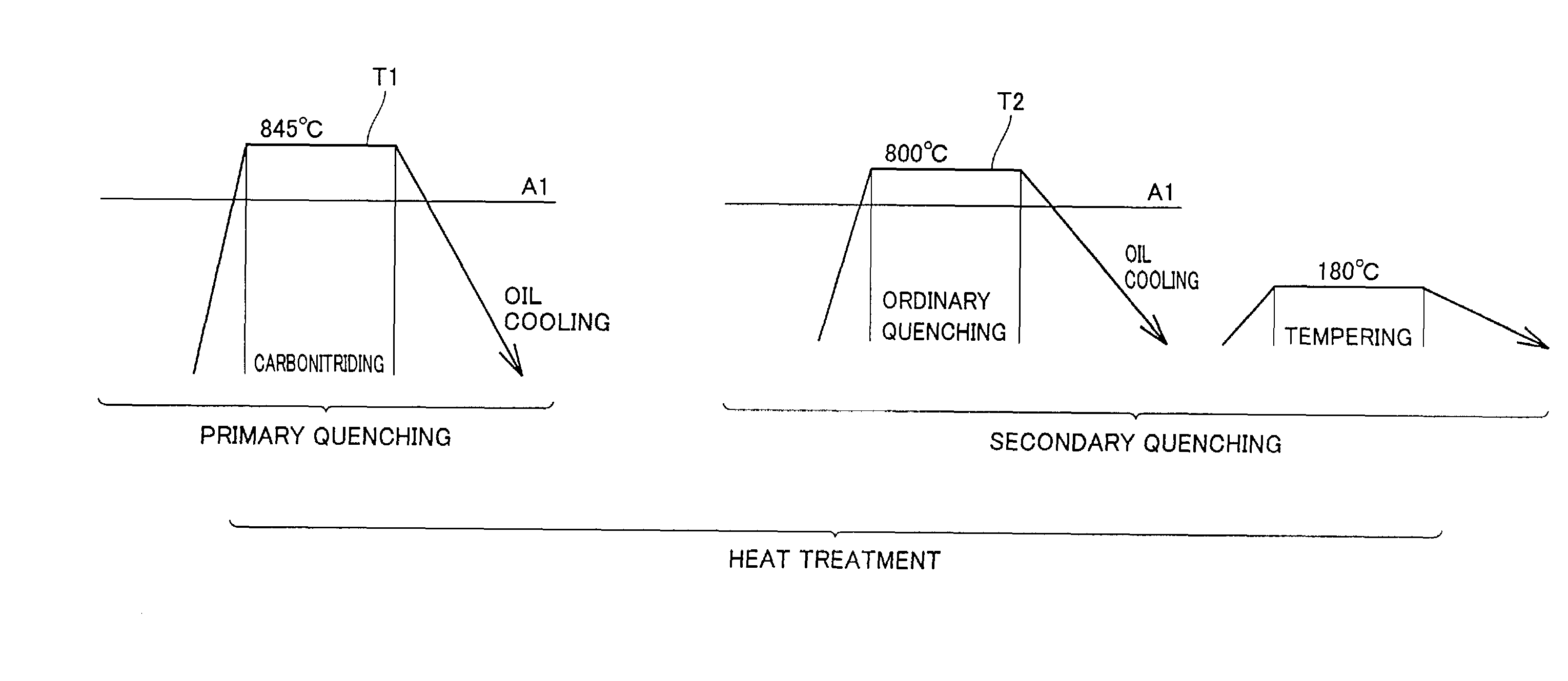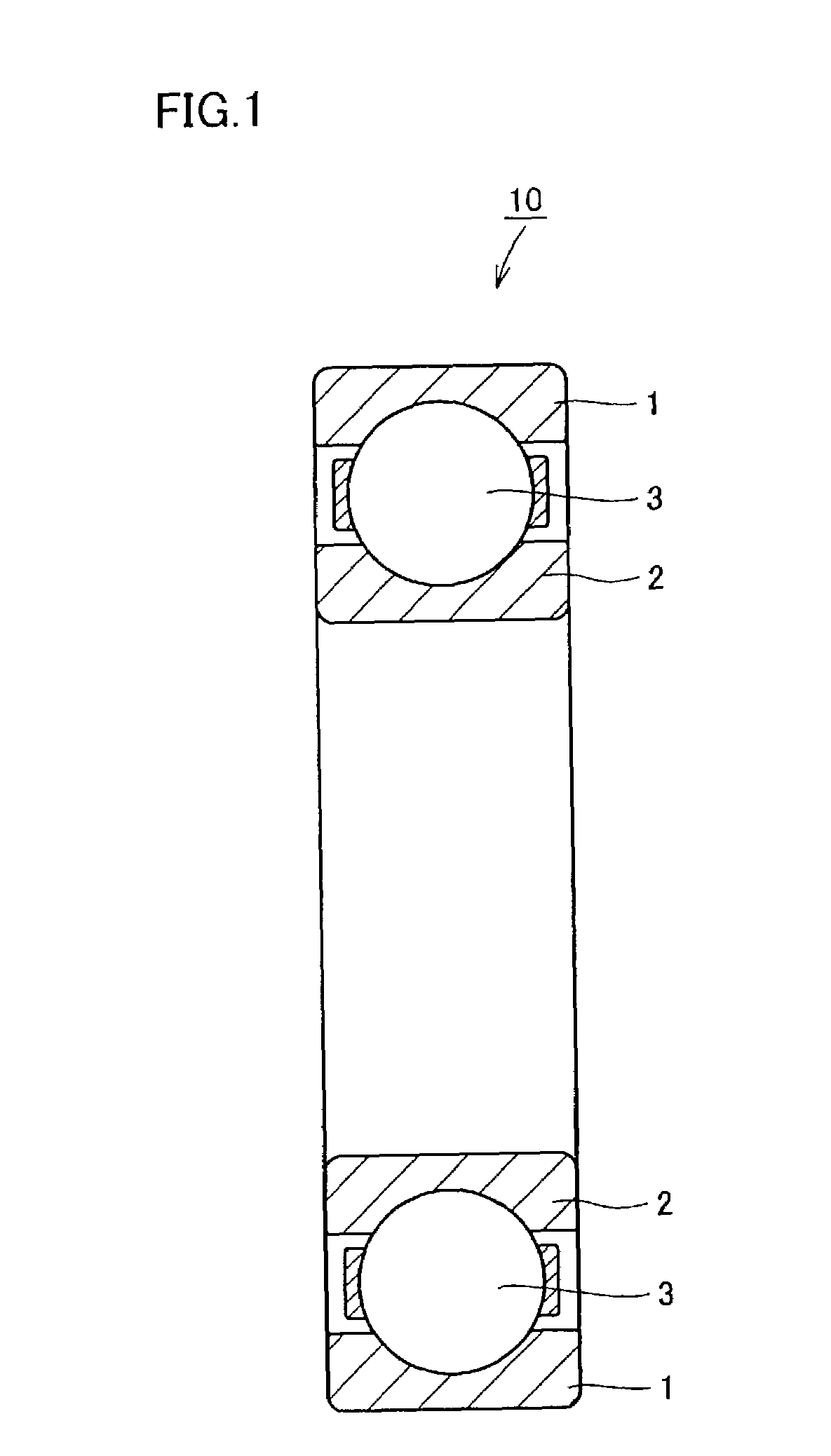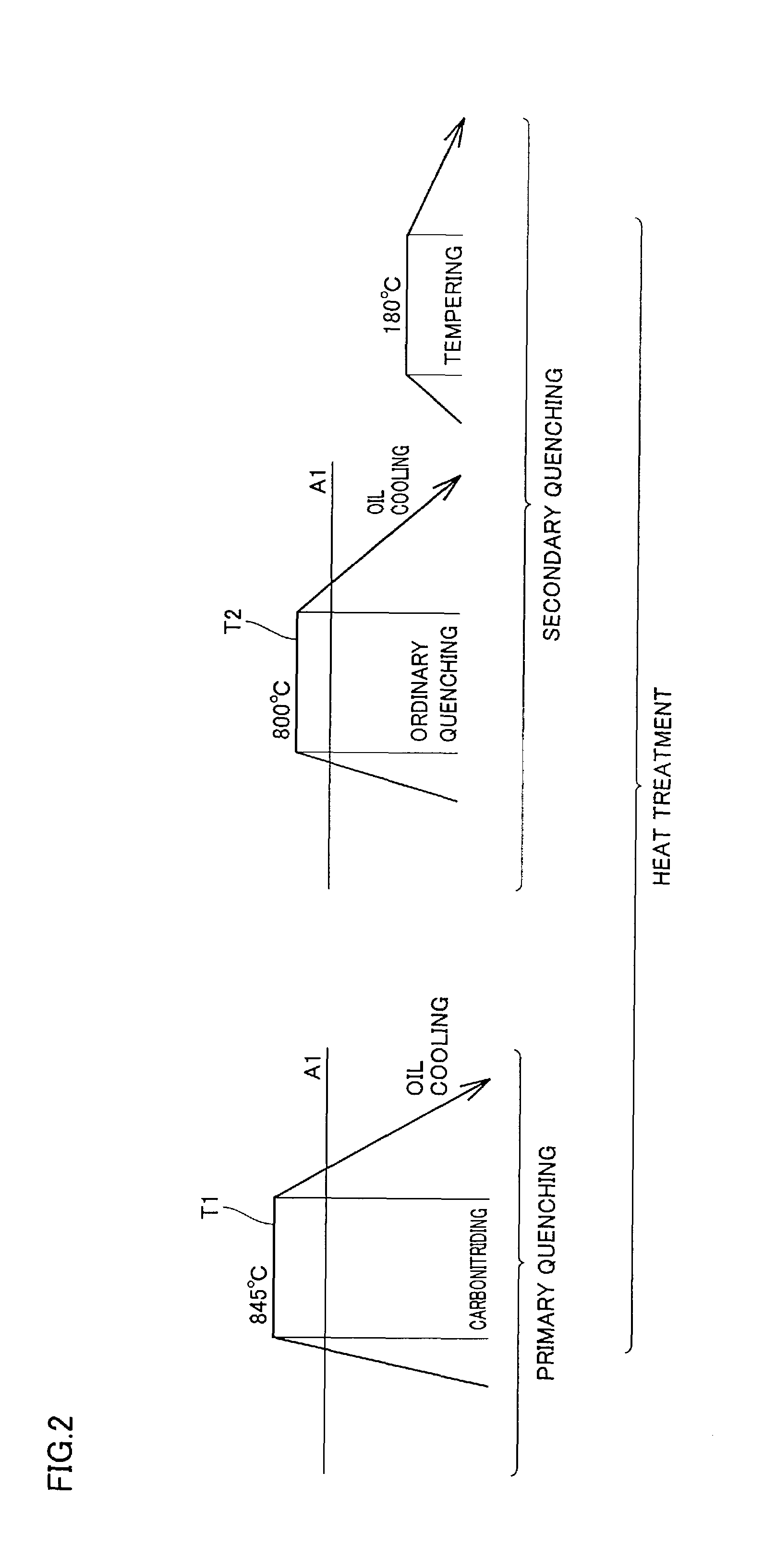Bearing part, heat treatment method thereof, and rolling bearing
a technology of rolling bearings and bearing parts, applied in the field of rolling bearings, can solve the problems of difficult to improve coarse microstructure, etc., and achieve excellent anti-crack strength, increase of aged dimensional change, and long life
- Summary
- Abstract
- Description
- Claims
- Application Information
AI Technical Summary
Benefits of technology
Problems solved by technology
Method used
Image
Examples
example 1
II. Test Results of Example 1
[0095](1) Hydrogen Content
[0096]The conventional carbonitrided item having undergone only carbonitriding exhibits very high hydrogen content of 0.72 ppm. This is considered because ammonium (NH3) included in the atmosphere for the carbonitriding decomposed and penetrated into the steel. By comparison, the hydrogen contents of samples B-D are decreased nearly to the half, i.e., 0.37-0.40 ppm, which is at the same level as that of the ordinary quenched item.
[0097]Steel embrittlement attributable to dissolved hydrogen can be alleviated by a decrease of the hydrogen content. That is, with the decreased hydrogen contents, samples B-D of the present example exhibit remarkably improved Charpy impact.
[0098](2) Grain Size
[0099]In the case where the temperature at secondary quenching is lower than the temperature at carbonitriding (and hence primary quenching), i.e., in the case of samples B-D, extremely fine austenite grains comparable to JIS grain size numbers 1...
example 2
[0107]The second example is now explained. A series of tests were performed on materials A, B and C explained below. As a material to be subjected to heat treatment, JIS SUJ2 (including 1.0 wt. % C, 0.25 wt. % Si, 0.4 wt. % Mn, 1.5 wt. % Cr) was employed commonly for A-C materials. Manufacturing histories thereof are as follows.
[0108]A material (Comparative Example): Subjected solely to ordinary quenching (unaccompanied by carbonitriding).
[0109]B material (Comparative Example): Subjected to quenching after carbonitriding (conventional carbonitriding and quenching). Carbonitriding temperature was 845° C. and the holding time was 150 minutes. The atmospheric gas for the carbonitriding was a mixed gas of RX gas and ammonia gas.
[0110]C material (Example of Present Invention): Bearing steel to which the heat treatment pattern shown in FIG. 2 was applied. It was carbonitrided at 845° C. and held for 150 minutes. A mixed gas of RX gas and ammonia gas was used as the carbonitriding atmosphe...
PUM
| Property | Measurement | Unit |
|---|---|---|
| mean grain size | aaaaa | aaaaa |
| temperature | aaaaa | aaaaa |
| wt. % | aaaaa | aaaaa |
Abstract
Description
Claims
Application Information
 Login to View More
Login to View More - R&D
- Intellectual Property
- Life Sciences
- Materials
- Tech Scout
- Unparalleled Data Quality
- Higher Quality Content
- 60% Fewer Hallucinations
Browse by: Latest US Patents, China's latest patents, Technical Efficacy Thesaurus, Application Domain, Technology Topic, Popular Technical Reports.
© 2025 PatSnap. All rights reserved.Legal|Privacy policy|Modern Slavery Act Transparency Statement|Sitemap|About US| Contact US: help@patsnap.com



